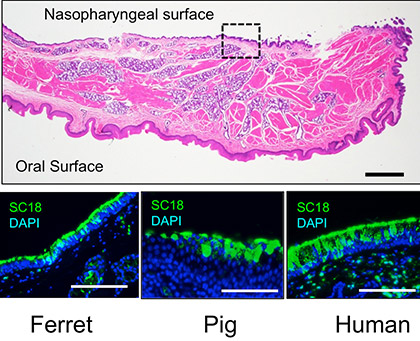NIH researchers find role for soft palate in adaptation of transmissible influenza viruses
National Institutes of Health scientists and their colleagues identified a previously unappreciated role for the soft palate during research to better understand how influenza (flu) viruses acquire the ability to move efficiently between people. In studies using ferrets, the team collected evidence that this patch of mucous-coated soft tissue separating the mouth from the nasal cavity is a key site for the emergence of flu viruses with a heightened ability to spread through the air. The finding could aid efforts to define the properties governing flu virus transmissibility and predict which viruses are most likely to spark pandemics.
The research was led by Kanta Subbarao, M.D., of NIH’s National Institute of Allergy and Infectious Diseases (NIAID), and Ram Sasisekharan, Ph.D., of Massachusetts Institute of Technology, Cambridge. Their report is published online in the journal Nature.
This page was last updated on Friday, January 21, 2022
